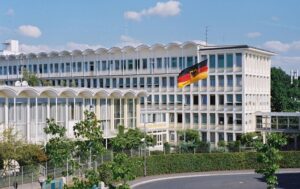In a strategic move, BYD Co., a Chinese electric vehicle giant, announced plans to acquire a 20% stake in its Thai distributor, Rever Automotive Co. This investment comes hot on the heels of BYD’s recent launch of its first Southeast Asian production facility, signaling a significant push to dominate the regional EV market.
The announcement, made late Saturday by Rever Automotive, highlights the companies’ joint investment agreement aimed at boosting their competitive edge in the electric vehicle sector. This partnership is set to enhance their market presence and operational synergy in Thailand and the broader Southeast Asian region.
BYD’s new plant in Rayong, Thailand, is a cornerstone of this strategy. The facility, which took nearly two years to come to fruition following the acquisition of the property, is designed to manufacture right-hand-drive vehicles tailored for Thai and Southeast Asian consumers. With a production capacity of 150,000 cars annually, the plant will also produce essential components such as batteries and gearboxes.
The timing of this investment is significant. It follows a high-profile meeting between BYD chairman and CEO Wang Chuanfu and Thai Prime Minister Srettha Thavisin, underscoring the strategic alignment between the company and Thai government objectives. Thailand’s ambitious goal to have electric vehicles make up 30% of its local car production by 2030 positions it as an ideal partner for BYD’s expansion plans.
Meanwhile, BYD is also setting its sights on Turkey. Sources indicate that Turkey is on the verge of announcing a $1 billion deal with BYD to establish a new manufacturing facility in Manisa province. This facility is expected to be a linchpin in BYD’s European expansion.
Turkey’s customs-union agreement with the EU offers BYD a strategic advantage, providing enhanced access to European markets. This is particularly timely as the EU plans to impose temporary duties on Chinese electric vehicles, which could add 17.4% to existing levies. By establishing a local presence in Turkey, BYD aims to navigate these trade barriers effectively.
The Turkish facility will cater to both the European market and the burgeoning domestic demand for electric vehicles. Last year, EVs accounted for 7.5% of auto sales in Turkey, a nation with a population nearing 90 million. This investment also follows Turkey’s recent policy shift, reversing planned additional duties on Chinese automobiles—a change influenced by President Erdogan’s discussions with Chinese President Xi Jinping at the Shanghai Cooperation Organization summit.
This dual expansion strategy into Southeast Asia and Europe is part of BYD’s broader plan to lead the global electric vehicle market. According to a recent report by Counterpoint Research, BYD is on track to surpass Tesla in battery electric vehicle (BEV) sales this year, marking a significant industry shift. The report highlighted that BYD sold 426,039 BEVs in the second quarter, a 21% increase, while Tesla’s sales dipped by 4.8% to 443,956 cars.
In total, BYD produced over 3 million battery-only and hybrid cars last year, outpacing Tesla’s 1.84 million. While Tesla remains a formidable competitor, especially in the BEV market, BYD’s rapid growth, particularly in China, positions it as a dominant player.
As BYD accelerates its global expansion, the dynamic landscape of the electric vehicle market is set for a significant transformation, reflecting the company’s ambitious vision and strategic prowess.
(Source: China EV Post | Bloomberg | Technology Times)









